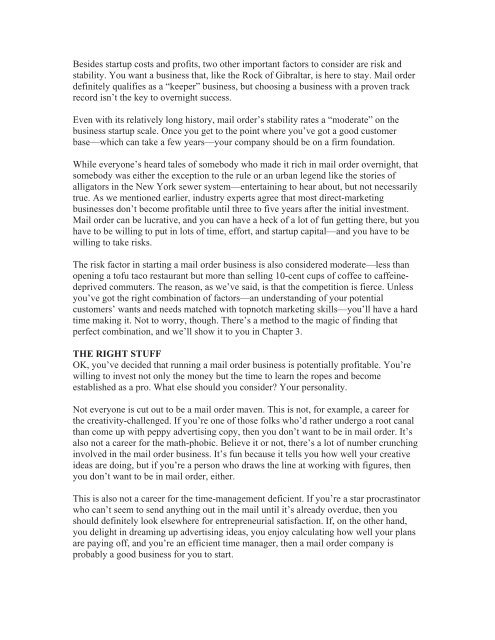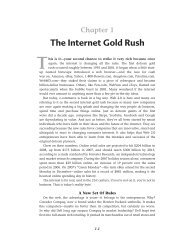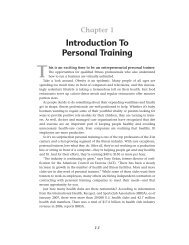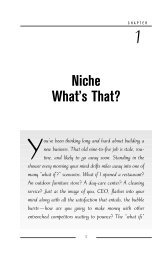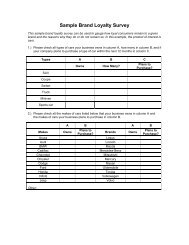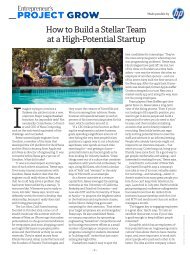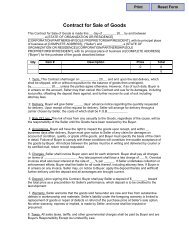Chapter 1 Mail Order Mania
Chapter 1 Mail Order Mania
Chapter 1 Mail Order Mania
You also want an ePaper? Increase the reach of your titles
YUMPU automatically turns print PDFs into web optimized ePapers that Google loves.
Besides startup costs and profits, two other important factors to consider are risk and<br />
stability. You want a business that, like the Rock of Gibraltar, is here to stay. <strong>Mail</strong> order<br />
definitely qualifies as a “keeper” business, but choosing a business with a proven track<br />
record isn’t the key to overnight success.<br />
Even with its relatively long history, mail order’s stability rates a “moderate” on the<br />
business startup scale. Once you get to the point where you’ve got a good customer<br />
base—which can take a few years—your company should be on a firm foundation.<br />
While everyone’s heard tales of somebody who made it rich in mail order overnight, that<br />
somebody was either the exception to the rule or an urban legend like the stories of<br />
alligators in the New York sewer system—entertaining to hear about, but not necessarily<br />
true. As we mentioned earlier, industry experts agree that most direct-marketing<br />
businesses don’t become profitable until three to five years after the initial investment.<br />
<strong>Mail</strong> order can be lucrative, and you can have a heck of a lot of fun getting there, but you<br />
have to be willing to put in lots of time, effort, and startup capital—and you have to be<br />
willing to take risks.<br />
The risk factor in starting a mail order business is also considered moderate—less than<br />
opening a tofu taco restaurant but more than selling 10-cent cups of coffee to caffeinedeprived<br />
commuters. The reason, as we’ve said, is that the competition is fierce. Unless<br />
you’ve got the right combination of factors—an understanding of your potential<br />
customers’ wants and needs matched with topnotch marketing skills—you’ll have a hard<br />
time making it. Not to worry, though. There’s a method to the magic of finding that<br />
perfect combination, and we’ll show it to you in <strong>Chapter</strong> 3.<br />
THE RIGHT STUFF<br />
OK, you’ve decided that running a mail order business is potentially profitable. You’re<br />
willing to invest not only the money but the time to learn the ropes and become<br />
established as a pro. What else should you consider? Your personality.<br />
Not everyone is cut out to be a mail order maven. This is not, for example, a career for<br />
the creativity-challenged. If you’re one of those folks who’d rather undergo a root canal<br />
than come up with peppy advertising copy, then you don’t want to be in mail order. It’s<br />
also not a career for the math-phobic. Believe it or not, there’s a lot of number crunching<br />
involved in the mail order business. It’s fun because it tells you how well your creative<br />
ideas are doing, but if you’re a person who draws the line at working with figures, then<br />
you don’t want to be in mail order, either.<br />
This is also not a career for the time-management deficient. If you’re a star procrastinator<br />
who can’t seem to send anything out in the mail until it’s already overdue, then you<br />
should definitely look elsewhere for entrepreneurial satisfaction. If, on the other hand,<br />
you delight in dreaming up advertising ideas, you enjoy calculating how well your plans<br />
are paying off, and you’re an efficient time manager, then a mail order company is<br />
probably a good business for you to start.


